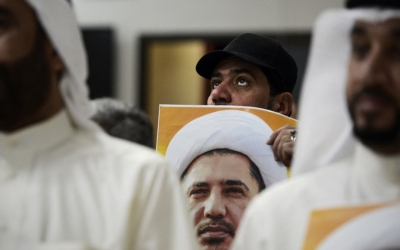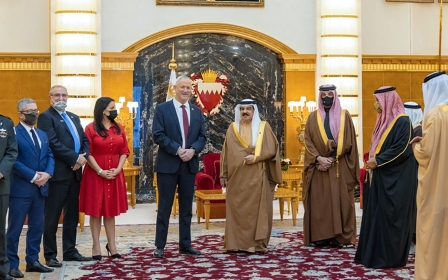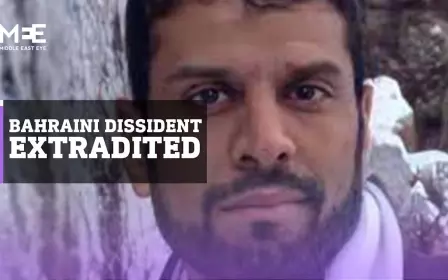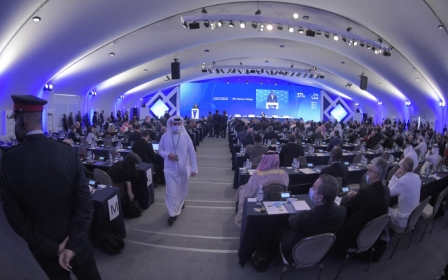Lebanon bans Bahraini opposition events weeks after deportation orders
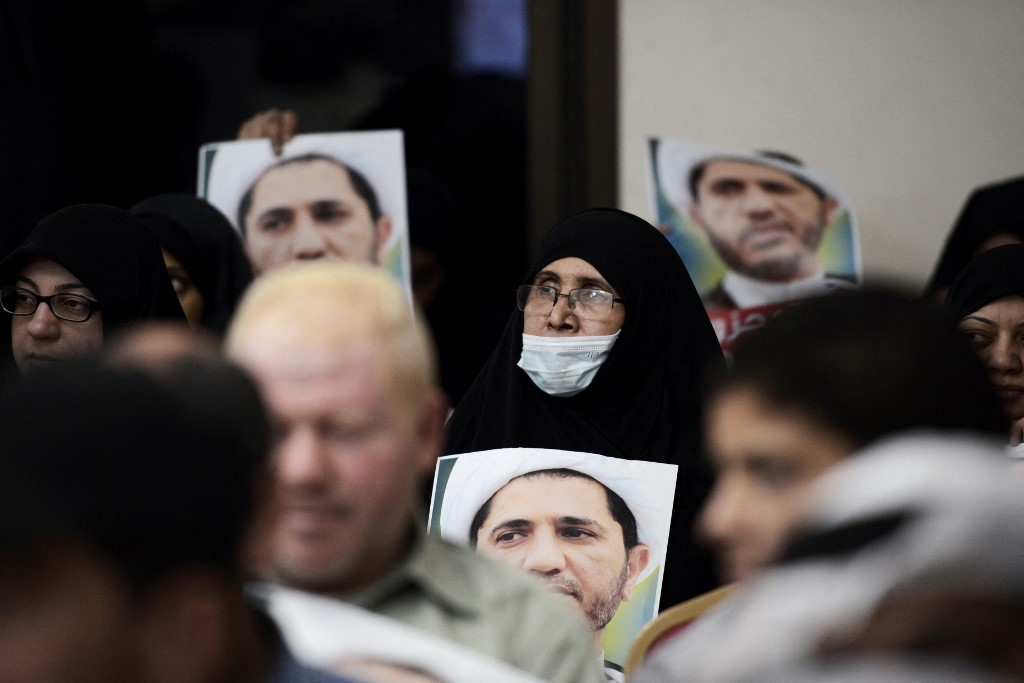
Lebanon has banned Bahraini opposition figures from holding two events, weeks after ordering their expulsion from the country amid ongoing diplomatic tensions between Beirut and Gulf states.
In December, Lebanese Interior Minister Bassam Mawlawi instructed General Security to deport members of Al-Wefaq, Bahrain's leading opposition party, after they held a news conference and released reports highlighting human rights abuses in the kingdom.
New MEE newsletter: Jerusalem Dispatch
Sign up to get the latest insights and analysis on Israel-Palestine, alongside Turkey Unpacked and other MEE newsletters
On Thursday, Mawlawi said he was banning two Bahraini opposition events scheduled to be held on Friday and next Monday, but it was not immediately clear who the organisers were.
"If these two events were to take place, they would undermine official Bahraini authorities and Gulf Arab states, thus blocking efforts by Lebanon to boost ties with these countries," Mawlawi said in a statement.
Ali Mushaima, Bahraini activist and son of imprisoned opposition leader Hassan Mushaima, told Middle East Eye that Lebanon's actions reveal "the scale of Bahrain's fear and the lengths to which they will go to avoid dissent".
In October, Saudi Arabia and its allies, including Bahrain, suspended diplomatic ties with Lebanon after then Lebanese information minister, George Kordahi, criticised Riyadh's military intervention in Yemen.
Kordahi resigned in early December in an attempt to ease the stand-off which has impacted Lebanon's already battered economy. A little over a week later, Mawlawi ordered the deportation, hours after a call with his Bahraini counterpart, criticising the Al-Wefaq event.
"The sad reality," Mushaima told MEE, "is that Lebanon is undergoing its worst economic crisis and is being exploited by Gulf money. Bahrain's rulers cannot stand up against their Western allies so they take comfort in wielding their authoritarianism elsewhere."
Since Bahrain's 2011 uprising, which ended in a bloody crackdown with the help of Saudi forces, opposition parties have been banned, with dozens of political opponents jailed, triggering international criticism. Al-Wefaq was banned in July 2016.
In December, Bahraini opposition figures living in Lebanon told MEE that the deportation order put all of them in danger.
"Beirut became a refuge for so many of our colleagues and fellow activists aspiring for a better Bahrain," said Baqir Darwish, head of the Bahrain Forum for Human Rights.
Middle East Eye delivers independent and unrivalled coverage and analysis of the Middle East, North Africa and beyond. To learn more about republishing this content and the associated fees, please fill out this form. More about MEE can be found here.


